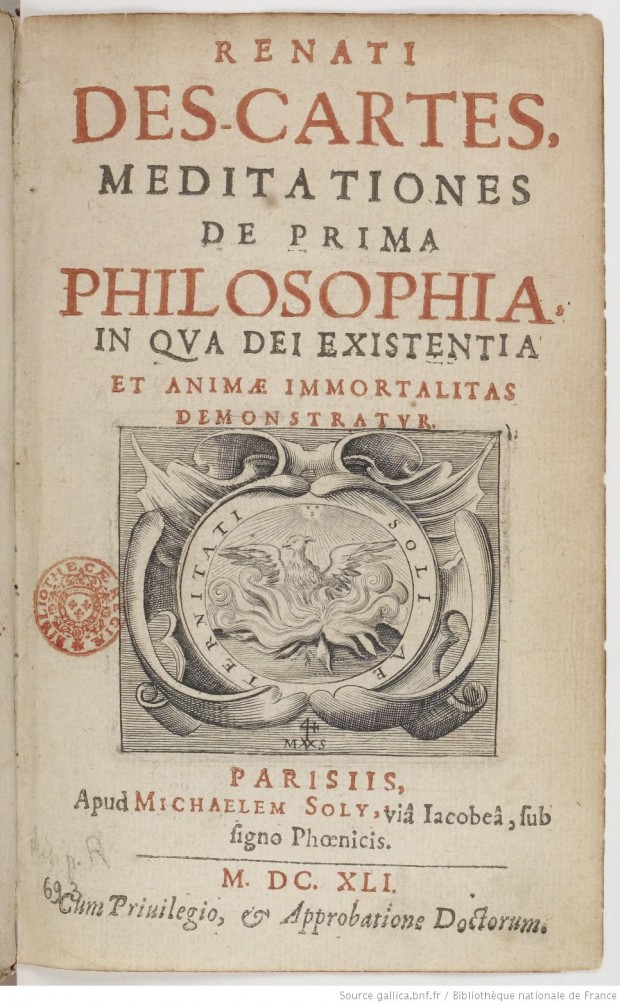An iconographic and text archive related to communication, technology and art.
☛ Gallica / Bibliothèque Nationale de France: Renati Des-Cartes Meditationes de prima philosophia, in qua Dei existentia et animae immortalitas demonstratur. [Sequuntur objectiones… cum responsionibus authoris by René Descartes, 1641 (first Latin edition), In-8°, 603 p. (Public Domain) Click for hi-res.
From the Internet Encyclopedia of Philosophy:
Descartes began work on Meditations on First Philosophy in 1639. Through Mersenne, Descartes solicited criticism of his Meditations from amongst the most learned people of his day, including Antoine Arnauld, Peirre Gassendi, and Thomas Hobbes. The first edition of the Meditations was published in Latin in 1641 with six sets of objections and his replies. A second edition published in 1642 also included a seventh set of objections and replies as well as a letter to Father Dinet in which Descartes defended his system against charges of unorthodoxy. (“René Descartes” by Justin Skirry, last updateed on September 13, 2008)
In “The Age of the World Picture” Heidegger has a comment where is poses the importance of Descartes Meditations for science as a research process:
Science as reasearch first arrives when, and only when, truth has transformed itself into the certainty of representation. It is in the metaphysics of Descartes that, for the first time, the being is defined as the objectness of representation, and truth as the certainty of representation. The title of his main work reads Meditationes de prima philosophia, Meditations on First Philosophy. Πρώτη φιλοσοφία is the term coined by Aristotle for that which was later called “metaphysics”. The whole of modern metaphysics, Nietzsche included, maintains itself within the interpretation of the being and truth opened up by Descartes. (“The Age of the World Picture” in Off The Beaten Track, tr. and ed. by Julian Young and Kenneth Haynes, Cambridge: Cambridge Univetsity Press, 2002, p. 66; Google Books)
It’s yet another way of thinking about representations as a way to reduce uncertainty.
Previously on Aphelis:
- By Philippe Theophanidis
- on
- ― Published in Philosophie
- Tagged: certainty, Descartes, Heidegger, meditations, object, representation, science, truth, uncertainty

